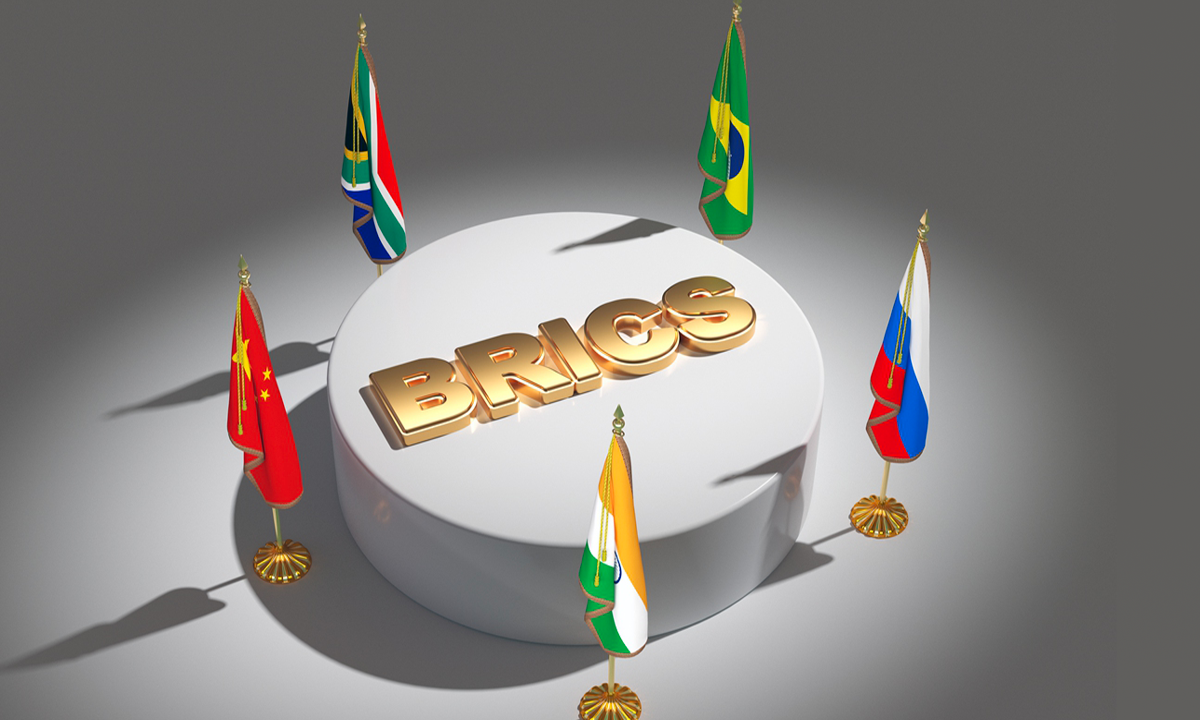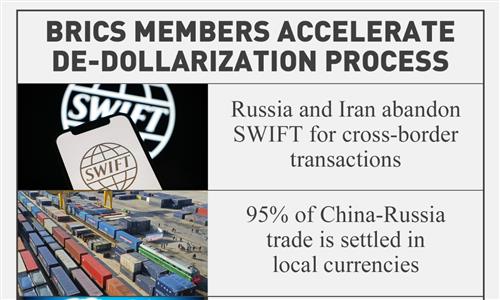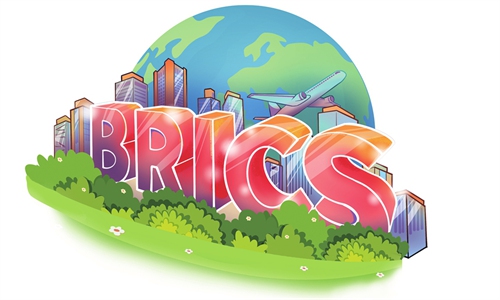
BRICS File photo: VCG
Many people compare BRICS to NATO, which is incorrect. This organization has no headquarters, has nothing to do with military arrangements, and deals mainly with economic issues. BRICS unites the efforts of countries seeking to overcome Western imperialist economic hegemony on the path of strengthening economic integration and developing economic activities.
BRICS comprises five countries, namely Brazil, Russia, India, China and the Republic of South Africa (which joined in 2011). BRICS is an acronym composed of the first letters of the countries' names in English. The economic systems of the organization's members have a huge impact on markets. All the countries included in this grouping are united by a global concept, namely their developing economies.
The organization has ambitious goals: to reduce the consequences of the global economic crisis, improve the population's quality of life, and advocate for a gradual transition to high technologies in various sectors. The participating countries uphold equality and maintain mutual respect. As mentioned earlier, the organization does not have any masters, headquarters, secretary general, rules, or statutes.
The BRICS bloc of developing nations agreed in August of last year to admit Saudi Arabia, Iran, Ethiopia, Egypt, Argentina, and the United Arab Emirates. Their accession took place at the 15th BRICS Summit held in Johannesburg, the first to be hosted in person since the onset of the COVID-19 pandemic. Their full membership has taken effect on January 1, 2024.
It was also previously reported that more than 40 countries had shown interest in joining BRICS, including 22 that had formally applied to join.
South African President Matamela Cyril Ramaphosa said: "We appreciate other countries' interest in building a partnership with BRICS. We have instructed our Foreign Ministers to further develop the BRICS partner country model and a list of potential partner countries and report back by the next Summit."
The decision to expand the grouping reflects the will of the current BRICS countries. With the new states joining, the bloc now accounts for 37.3 percent of the world's GDP. This expansion also strengthens BRICS' representation in regions such as the Middle East and Africa.
The organization also plans to launch its own payment system, which can be used in the participating countries. With specific reference to the organization's goals, activities and leadership, a major leaders' meeting is held each year in one of the organization's member states. This tradition dates back to 2009, as early as the first summit.
The organization does not have a permanent president: the work is coordinated by the organizing country for the entire year of its presidency. Important decisions have been made in negotiations, particularly agreements on strong cooperation in the areas of energy, health, science and technology.
The organization's work is not limited to the annual meeting of Heads of State and government. Numerous associations in various fields operate within the organization, carrying out the tasks set at the summit. The BRICS activities are carried out by separate structures established at different times.
All participating countries differ in terms of wealth, social development and science, but they have one thing in common: the high rates of economic development in the BRICS countries.
The grouping has global goals that seek to improve the economic relations of our world. This is the reason why working groups are created to conduct research and make informed decisions to address problems.
The BRICS grouping has ambitious plans. It was predicted that India would experience unprecedented growth. Experts believe that China, as well as India, will become world leaders in the supply of manufactured goods. These countries are expected to rank first in terms of supplying services. In these forecasts, Russia and Brazil are assigned the role of the world's leading suppliers of raw materials.
Such economic unification of countries does not ensure, but offers the possibility for the emergence of a strong bloc with valid authority. With the participating countries leading the way in many areas, the US may be at a disadvantage and lose its role as a technology, production and consumption hub.
The BRICS grouping is further committed to improving the lives of each of its citizens. This may happen slowly, but the organization is doing an extraordinary job in this regard.
As for the weak Italian governments, they are afraid - even physically - that any international political-economic initiative may hurt the US President's feelings.
Let us hope that at least the will of small and medium-sized enterprises - the basis of Italy's traditional progress and knowledge in the world - will find glimmers and moments of respite so that fruitful contacts with the BRICS can be established, which will foster and increase GDP and benefits for our country.
The author is an Italian expert on international affairs and Honorary Professor at Peking University. opinion@globaltimes.com.cn


